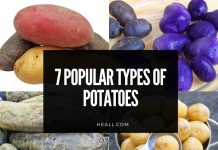We have all seen, and know about the pesticides farmers spray on their crops. In today’s modern world of farming, pesticide use is a given. Indeed, in an attempt to ensure a good and wholesome food supply, some farmers have answered the call and participate in farming methods that do not incorporate the use of pesticides – Organic Farming.
Table of Contents
Systemic Pesticides are Chemicals that Become Part of Your Food
Unfortunately, there is another form of pesticide application that is far worse than topical application. Systemic application is when pesticides, including fungicides, are applied to the seeds themselves, the soil, the leaves, or are included within fertilizer.
These chemicals are absorbed by the plant, and become part of it. Moreover, the systemic pesticide remains as part of the plant, even when harvested and eaten.
Certainly, washing your fruits and veggies is a good idea; however, if the chemical is part of the produce, you have no way of getting rid of it. Systemic pesticides work by circulating throughout the plant, and killing insects that choose to eat the plant, or any of its parts. According to Barbara Pleasant, Mother Earth News October/November 2010, systemic pesticide use on food crops started in 1998, and has progressively increased over the last ten (10) years.
There are four (4) main systemic pesticides in use today, and they are listed below.
Imidacloprid: Used on delicate vegetables like leafy greens and tomatoes. Typically applied until ready to harvest.
Thiamethoxam: Applied to the soil, and used on most fruit and vegetable crops. Its first application was to treat corn seeds before planting.
Clothianidin: Typically used for soil treatment when growing potatoes. It is also used on cereal grains, sugar beets, corn, and canola.
Dinotefuran: This chemical can be used as a soil treatment, or can be sprayed onto plant leaves. It is usually used on cucumber (family) crops, leafy greens, and potatoes.
Tests Show that Produce Grown from Soil and Seeds Treated with Systemic Pesticides contain Pesticide Residues
Additionally, Ms. Pleasant reports that between the years 1999 to 2007, the US Department of Agriculture’s pesticide residue study results were reviewed by the Pesticide Action Network, and they discovered that systemic pesticides were present in (at least) 70% of conventionally grown lettuce, and broccoli samples. The chemical that appeared most frequently was Imidacloprid.
Moreover, two (2) other systemic pesticides were found in the produce tested: Clothianidin residue was seen in potato crops, and Thiamethoxam was found in sweet peppers, and strawberries. Furthermore, the U.S. Environmental Protection Agency (EPA) has initiated their own investigation into the safety of Imidacloprid; however, it will not be concluded until 2014. As if the use of Imidacloprid on food crops was not bad enough, some of the more popular insecticides sold for home use contains Imidacloprid.
It is present, and sold in products for use on grass, trees, and shrubs. In fact, according to the specification data sheets from an online reseller, Pest Control Mart, the following states have restrictions on the use of products containing Imidacloprid; Alaska, Colorado, Iowa, Idaho, Massachusetts, Maine, Michigan, Minnesota, Montana, North Dakota, Nebraska, New Hampshire, New York, South Dakota, Vermont, Wisconsin, and Wyoming.
The Most Commonly used Systemic Pesticides are Modeled after Nicotine
Interestingly, Imidacloprid is a chemical within a class of insecticides known as Neonicotinoid(s), and Neonicotinoid(s) are a type of neuro-active (acting on the central nervous system) insecticides that are modeled after nicotine. Apparently, nicotine modeled chemicals are very good at killing a wide variety of pests.
We are all aware of the health related problems caused by nicotine ingestion, and it is for those reasons, people have given up tobacco use. Unfortunately, even though a majority of us chosen not to ingest tobacco products, we are getting our nicotine (like) substance doses from the fruits and vegetables we eat to stay healthy.
Indeed, a 2009 report in the journal of Economic Entomology reports that, “When bees consume guttation drops (water droplets that plants sometimes exude), collected from plants grown from neonicotinoid coated seeds, they encounter death within a few minutes.”
Due to the abundance of scientific and medical research, we now know that nicotine causes health problems in humans. We know also that nicotine like substances are very effective insect killers. The question we all should be asking is: why are we combining a known dangerous substance to products that we are consuming for health reasons? If there is anyone out there that had their doubts about organically grown goods, the information about systemic pesticides should certainly erase them.
Sources
- “Systemic Pesticides: Chemicals You Can’t Wash Off”. – By Barbara Pleasant Pg. 16 Mother Earth News October/November 2010
- “Honey-bee Collapse Disorder”. Wikipedia. http://en.wikipedia.org/wiki/Colony_Collapse_Disorder



